Retiring in Spain As An Expat – that will be the topic of today’s article.
Before introducing this article, if you are interested in our core services which are expat financial, insurance and mortgages, you can contact me here.
The best time to consider your financial situation is when you are moving to a new country.
Introduction
Have you ever been craving for warm weather, a relaxed lifestyle, a welcoming culture, and excellent cuisine? If that sounds like a YES, Spain is one of the best countries that can offer you. These are just a few of the things Spain offers retirees. And more than 6 million expats would call Spain home.
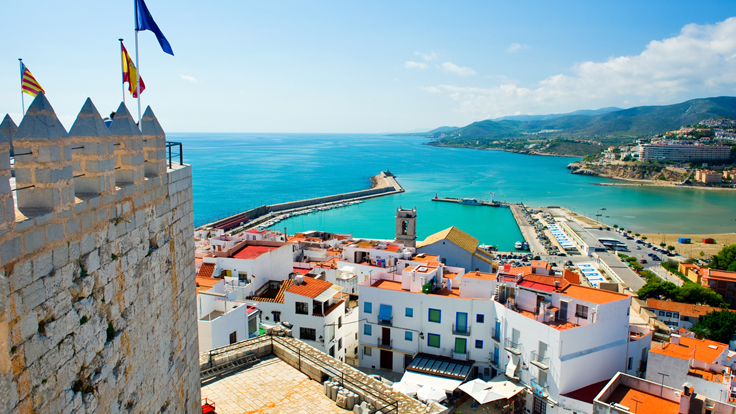
Spain also has a good standard of living, a competitive education system, and excellent healthcare. And this is why retirement in this country tends to be fairly low cost. In fact, you can retire comfortably in Spain for as low as $2,000-2,500 a month, about $25,000-28,000 a year. Does that sound interesting?
Of course, if you choose to live a bit further away from the big cities, you can retire on approximately $1,700-2,000 a month, which is about $20,000-23,000 annually. Should in case you need all the information needed to retire in Spain, we’ve got you covered, including the cost of living and much more.
Being the largest country in Southern Europe, with a population of over 48 million and an area over 198,000 square miles, Spain still has the less population density than most Western European countries, as well as a stable democratic government, dependable infrastructure, colorful culture, and secure banking system.
However, if you choose to know everything about retirement lifestyles in Spain, we are here for you. Our teams of experts have compiled the benefits of retiring in Spain as an expat. Aside from this fact, we will walk you through the cost of living, retirement visa types, travel connectivity, and many others.
Planning Your Retirement to Spain
Just as we’ve stated in our previous article ‘how to retire in Spain after Brexit,’ the benefits of relocating to this country cannot be overemphasized. Retirement abroad is becoming increasingly popular, with over one million British expats having their pension paid overseas, and Spain is by far and away from the most popular destination in today’s 21st century.

Visa Requirements in Spain
As mentioned in our previous article, Brits are now subject to the same general rules as other non-EU citizens. In a situation whereby you’re not planning to be resident, you’ll be subjected to the terms of a Schengen visa. And this allows you to visit Spain regularly, but you’ll be subject to a maximum of 90 days.
Also, British citizens do not need to apply for a visa but are subject to the same rules. Again, your passport will be stamped on entry and exit from the Schengen zone, and they’ll use this to monitor compliance with the 90 in 180 days rule.
Meanwhile, if you wish to stay more than 90 days, you’ll need to get a visa appropriate for the purposes of your stay in Spain. Thus Brits or other Non-EU citizens wishing to retire to Spain will generally need to apply for a Golden Visa or a Non-Lucrative Visa if they wish to stay long term in the country. In other news, you can refer to the previous article to know how to retire in Spain as an expat.
Rent or Buy an Apartment
There are many things to consider when it comes to renting or buying an apartment in the country. It’s no doubt that rental arrangements allow for greater flexibility if you suddenly need to return to your home country for unexpected reasons such as family issues or health status. This way, it can be sensible to rent initially even if you plan to buy so that you can get to know the area and experience the lifestyle.
On the flip side, buying your property gives greater security and allows expat to see this as their home with the freedom to do what you want to your home. Also, whatever the current market conditions say, there’s always the risk of the market falling and leaving you unable to sell in the short term until the market recovers.
Funding and UK Pension
When you’re planning your retirement anywhere in the world, you’ll need to know what funds will be available to you. This may include the personal and state pension or social security benefits. If you’re thinking of retiring abroad, you should find out if you can receive your Social Security or other federal agency benefits outside the United States of America.
Furthermore, you should be sent a claim form four months before you reach your State Pension age. If you want to know more information about this, you can contact the International Pension Centre IPC) if you haven’t received a letter three months before you reach the State Pension age.
Healthcare Program
While you’re preparing for your relocation or retirement lifestyle, the first thing to consider is the healthcare system. Ensuring that you have adequate healthcare is an essential consideration for everyone as they get older. However, the Spanish state health service establishes that all people, regardless of their nationality, have the right to health care.
In addition, the National Health Service (NHS) is available for Spanish nationals as well as foreigners who work in Spain and are registered and also contribute to the Spanish Social Security System. Not only that, but this also applies to foreigners who have retired from the system or for those who work in any EU country.
Getting the Best Retirement Lifestyle in Spain
If you’ve gone through our articles, you must have understood what attracted many expiates to retire in Spain, right? Of course, there are tons of outdoor activities! However, you should be clear on how you plan to spend your time. As with retirement anywhere, you cannot approach it as an extended holiday.
Since you have to spend time in your intended new home area, you’ll have to consider what you’ll do when the weather is not as reliable. Moreover, there are many other expats living in Spain and many clubs around the country, including cricket clubs, American Women’s Clubs, and many others, to mention a few. Not only that, but there are also popular bars, golf clubs, gyms, and other places to explore today.
10 Top-Rated Tourist Attractions in Spain
From the sunlight playing endlessly off the scales of Gehry’s Guggenheim Museum and the throbbing street life of La Rambla and Plaza Mayor to the forest of columns and Moorish arches disappearing into the silent expanse of Cordoba’s Great Mosque, Spain offers expats an exclusive retirement lifestyles.
If you’ve been planning your sightseeing and finding interesting things to do during your retirement, here’s the right platform to visit. Whether it’s a sun-drenched beach or an artistic highpoint of European culture, or a bio-geographical courtyard garden, Spain has every attraction to amuse you. Check it out now!
1. Alhambra and Generalife Gardens
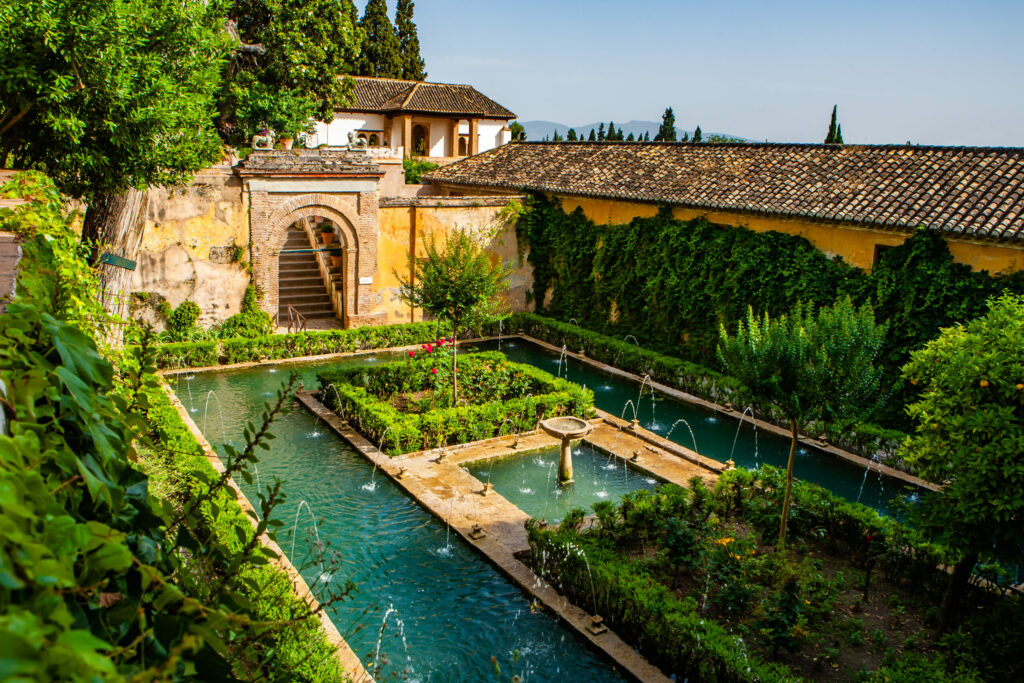
No matter how much you’ve seen or read about this awesome land, this Moorish pleasure palace will still take your breath away. Besides, the Nasrid dynasty royal palace is the artistic highlight of Spain’s Islamic period, when Al-Andalus, called Andalucia, represented the epitome of culture and civilization in Europe’s Middle Ages.
2. Barcelona’s Sagrada Familia/Gaudi Sites

You’ll also enjoy this place during your retirement in Spain. Research made it known that Antoni Gaudi took the architectural style known as Art Nouveau a step further, even, some have argued, into absurdity. With that being said, these fanciful and outrageous buildings he created in Barcelona have become landmarks, the signature attractions of the Catalan city.
3. The Great Mosque of Cordoba (Mezquita)

The Great Mosque of Cordoba is once the principal mosque of western Islam and is still known as the Mezquita; Cordobas’s mosque is one of the largest in the world and the finest achievement of Moorish architecture in Spain. Aside from this fact, building materials from Roman and Visigothic buildings were used in the construction, which began in 785, and by 1000, it had grown to its present dimensions.
4. Seville Cathedral and Alcazar
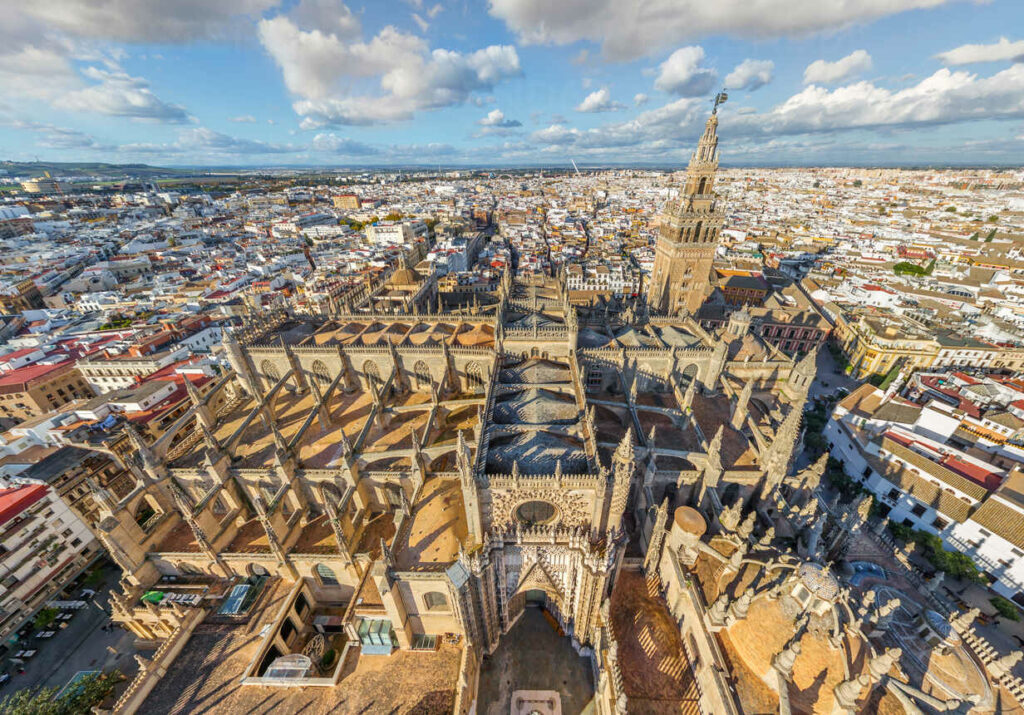
This is another place to visit if you’re planning to retire in this country. The La Giralda tower, Seville Cathedral, and the Alcazar combine to form a UNESCO World Heritage Site. This tower is a minaret, which is a masterpiece of Almohad architecture, according to UNESCO. Not only that, but this cathedral has more interior space than St. Peter’s in Rome and a 37-meter main altar of carved statues completely covered in gold.
5. Guggenheim Museum (Bilbao)

You really have to see this building if you wish to explore different outdoor activities during your retirement. In fact, we can tell you that no photograph has ever done justice to this symphony of shapes, so alive that they seem ready to take wing. Also, American architect Frank Gehry used blocks of limestone and undulating sheets of titanium to turn the notion of modern architecture into the atmosphere.
6. Santiago de Compostela Cathedral
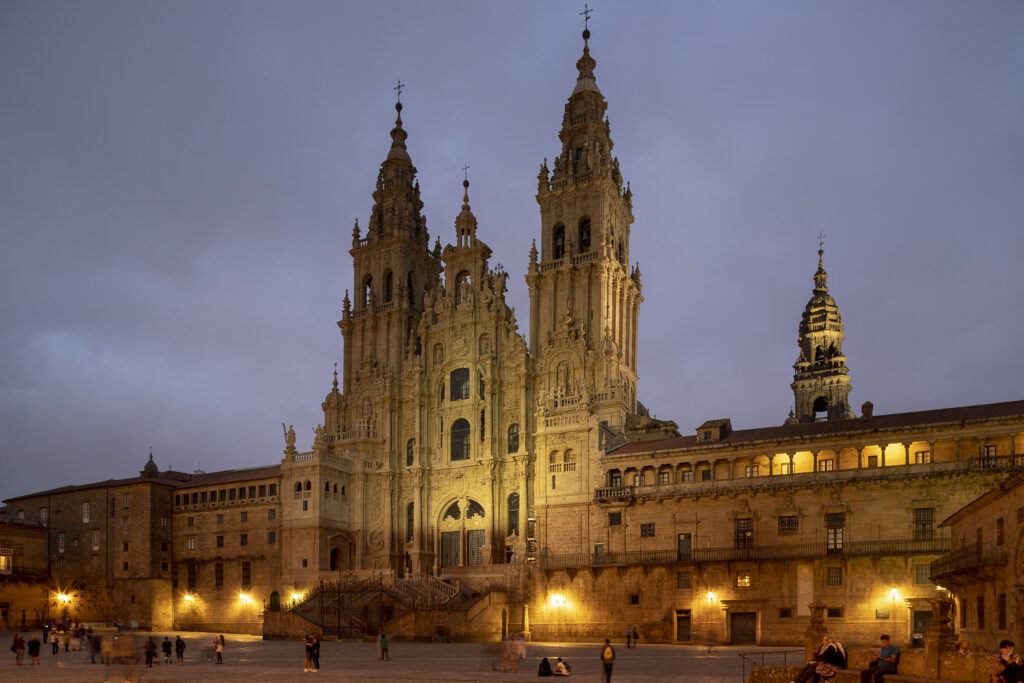
If there’s one place to see the ancient building of Santiago, this cathedral is the right place to visit as an expat. This magnificent cathedral was built to house and honor the saint’s relics, and it has been the goal of pilgrims since the Middle Ages. Here, you’ll see both of these periods at play as you enter the west front through one of Spain’s most impressive church facades.
7. Plaza Mayor (Madrid)
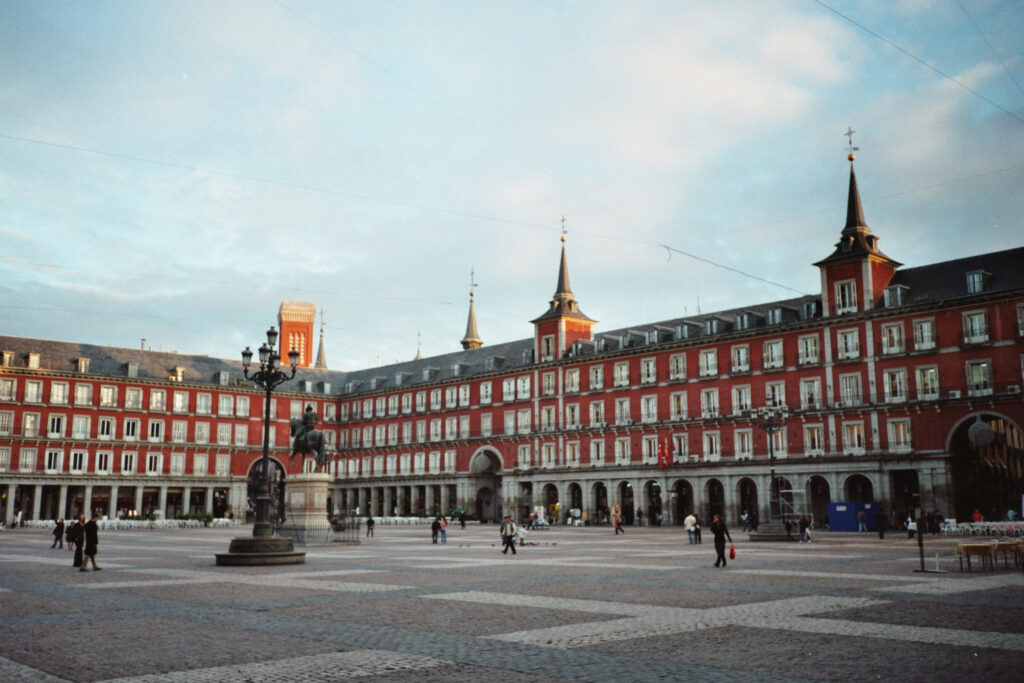
As of today, this place is considered to be the throbbing heartbeat of Spain’s vibrant capital city. Not only that, but this building has played an important part in Madrid life since the 16th century. And this happened when Philip II entrusted the task of designing it to his favorite architect Juan de Herrera, builder of the Escorial.
In addition to this wonderful outdoor activity, the research disclosed that it has served as the stage for ceremonial events in the country. With that being said, expats should know that Plaza Mayor in Madrid can be used to proclaim a new king, the burning of heretics, public entertainment, and canonization.
8. Beaches of Gran Canaria (Spain)

The largest of the Canary Islands, Gran Canaria is best known today for the golden sand beaches that line most of its southern coast. Moreover, Play Las Canteras is in the capital city of Las Palmas, popular with families for its calm water, protected by a natural breakwater of volcanic rock. More so, we can say that this place is home to the archipelago’s natural wonders, a vast protected area of gigantic sand dunes. Again, the water here is relatively warm and clear that it’s popular with divers in the country.
9. Alhambra Palace Granada
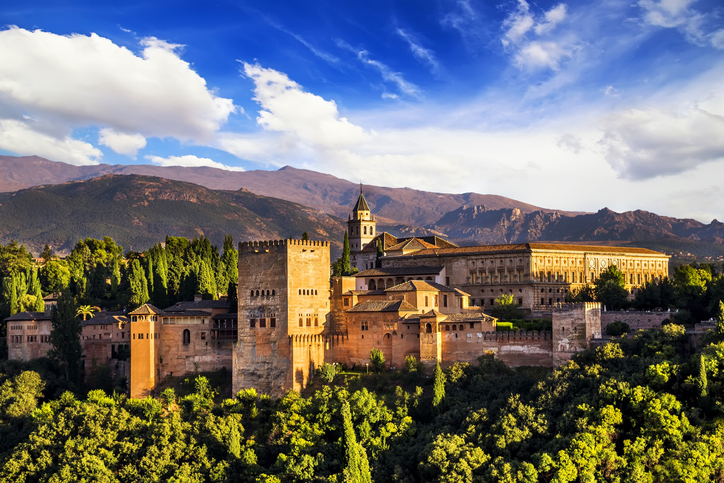
If there’s another place you should visit in the country, Alhambra Palace is second to none. Situated in a privileged position overlooking the beautiful city of Granada in Audalucia, the benefit of visiting these tourist attraction centers cannot be overemphasized. With so many visitors, it is always best to book your tickets in advance as there can be long queues at the ticket office depending on the time of the year. But you’ll find it open on Monday to Sunday from 8 am to 8 pm with extra evening visits on other days.
10. Running with the Bulls Pamplona

If you’re looking to be part of one of Spain’s most popular high octane fuelled fiestas, the San Fermines Running with the Bulls festivals is definitely what you need to experience. This place witnesses many thousands of visitors from across the globe flock to Pamplona to participate in running alongside 12 tons of running bulls. And they’re set free at 8 am each morning to run a prepared route around the city.
What to Know Before Moving to Spain
Have you been planning to relocate to Espana (that’s the Spanish for Spain)? Allow us to walk you through the things to know before moving to this country. From serious stuff like healthcare facilities, living costs, standard of living to the country’s love of ham and oranges, you’ll enjoy Spain. Take a look!
Good Healthcare System
Undoubtedly, Spain has its equivalent of the NHS (usually known as the Sistema Nacional de Salud, or SNS), which was founded, according to history, in 1986. This healthcare package is run by the government, funded by tax, and it’s even available to both Spanish citizens and locals. If you’re an expat who’s living and would love to work in Spain, you’ll be able to access the SNS. Meanwhile, if you’re planning to retire in the country, you can also enroll and get sorted with private medical insurance.
Learn Basic Spanish Language
If you’ve been planning to retire in Spain and you don’t understand even the basic words, that means you’re not ready. And we’re being facetious, but not expats moving to the country understands Spanish since they have to learn. On the flip side, it will definitely help, though almost 60 percent of Spaniards can’t speak English, according to a poll by the CIS State Research Institute in 2017.
Again, if you move to a busy Spanish city, you’re more likely to encounter English speakers. Meanwhile, if you head to the countryside and you understand basic words, you’ll be amazed at how the local will treat you. That’s why we always advise all new emigrant or expats to learn basic Spanish language.
Spain Is Home To Lots of Languages
If you’re moving to Spain for the first time, always know that this country is home to many languages. Moreover, the Spanish we talked about in the previous section is more specifically known as Castilian. More so, if you see a northerner and a southerner start speaking to each other in Spain, it’s not just the difference of accent that might pose a problem. But, there are 16 different languages spoken in Spain, including the Canary, Catalan, Basque, Valencian, Galician, and many others, to mention a few.
Spain is Affordable
As Western European countries go, Spain is undoubtedly on the cheap side. According to Numbeo, the prices of goods and services in Spain are on average 18.80 percent lower than you’d ever expect in the United Kingdom, with rent being 28.17 percent lower. And again, it’s no surprise that so many Brits head to this country to spend their pensions. However, Spain’s average household net-adjusted income per capita is $24,400 per year, noticeably lower than the OECD average of $35,700 per year.
Spain Is Built On Catholicism
Spain is one of Europe’s catholic heavyweights, and it’s been immersed in the faith ever since Queen Isabella I of Castile married King Ferdinand II of Aragon in 1469. As of then, these two lovebirds were known as the Catholic Monarchs, and their marriage marked the unification of Spain. Although there was Catholicism in Spain before this marriage, but it wasn’t thriving. According to Statista, 61 percent of people in Spain are identified as catholic in 2020, suggesting the faith has taken a hit in the past 7 years.
Football Is Like a Religion

Another thing to take into consideration is that Spanish interest in football certainly isn’t waning, and thankfully it doesn’t involve ritual slaughter at the end of each game. In other words, the Spanish are really good at football, and they dominated the world stage a few years ago. Not only that, but the Spanish national team won the European championship in 2008, the world cup in 2010, and then another European Championship in 2012.
Not Always Sunny
If you’re moving to Spain for hot summers and mild winters, you need to make sure you’re going to the right place in the country. This is because; Spain actually hosts a wild variety of weather, and it’s been Europe’s fourth-largest country and all behind Ukraine, France, and Russia.
Prepare For Lots of Bureaucracy
If you want to retire in Spain, bureaucracy is one thing you should prepare for. Speaking of paperwork, Spain is famous for its red tape till today. And as an expat, you’ll have to apply for different items of paperwork once you arrive in the country. This way, the process can be a little frustrating if you aren’t prepared, so a word of advice is that the level of professionalism in the country varies, and you need to be ready for lots of bureaucracy.
Frequently Asked Questions about Spain
Why is Spain so special in today’s digital world?
Well, there are many reasons while expats would love to relocate to Spain. If you read our article, you’ll understand more about the most interesting facts about this country. Spanish isn’t only the official language; Paella and Sangria are not available everywhere, people eat very late, and more are a good example.
What is unique about Spain and its culture?
The culture in Spain is very unique, and it’s not what you can see in any other countries. Aside from this fact, they’re very welcoming, and the country is known for its exotic beaches and lots of sunshine. Meanwhile, Spain is also called the land of bullfighting because bullfighting is a very popular sport in the country.
How much do I need to live in Spain?
When it comes to living in Spain, your budget and the retirement lifestyle are the things to consider. Moreover, you should plan to spend around €119 per day on your vacation in Spain, which is the average daily price based on the expenses of other visitors. However, past travelers have spent, on average, €32 on meals for one day and €26 on local transportation.
What is the cheapest month to travel to Spain?
If you want to travel to Spain and you’re looking for a cheap visa, book at least three weeks before departure in order to get a below-average price. Moreover, the high season is considered to be June and July, but the cheapest month to fly to Spain in February. So, be wary of this fact before you relocate.
What is the cheapest city to fly to Spain?
When it comes to the cheapest city to fly to, Madrid should be the first on your list. Aside from Madrid, Barcelona, Seville, Bilbao, and Alicante followed. For this reason, you can travel to any of these cities, but we advise you know the right area to reside for you to enjoy your retirement.
Conclusion
Spain is soulful, and the locals are welcoming, kind, and open. Not only that, but the overall lifestyle is quite laid-back, and there are lots of leisure activities to enjoy as an expat. The reality of retiring in Spain is the quality of life and healthcare system. Therefore, moving to retire in Spain could be your best decision.


